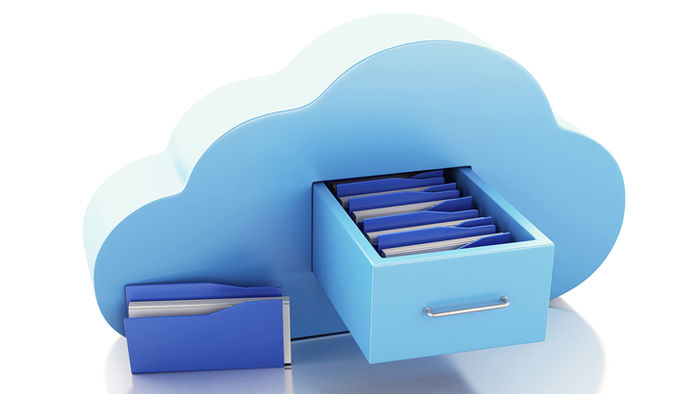The power of cloud-based storage
By Anthony O'Brien
The cloud is surely one of the most rapidly adopted tech buzzwords. But what does it really mean for small businesses?
The cloud is a way to network computing resources and to store and access data such as documents, images and spreadsheets. If data is stored in the cloud, staff can access the information they need to do their jobs from almost anywhere, at any time of day, on any device connected to the internet. Some of the top SME choices for cloud-based solutions are:
Dropbox
This was one of the first cloud storage services designed to replace file servers and share files, says Touch Technology IT consultant Gary Reynolds. "Apart from no longer needing to maintain a server for employees to share files, Dropbox users can access files such as Word documents and Excel spreadsheets anywhere in the world and from any connected device," he says. For entry-level users, Dropbox Basic, which provides 2GB of free space, is worth a look. For more space and employee access, Dropbox for Business is the next level up. For $17 a user each month, it provides unlimited storage space, unrestricted file recovery and priority customer support.
Google Drive
Google Drive reported 240 million monthly active users in October 2014. When signing up, you immediately receive 15GB of storage and you can buy more. To increase it to 100GB, you'll pay the princely sum of $1.99 a month. There is also Google Apps for Work, which includes productivity and collaboration tools delivered in your web browser. "This is similar to Microsoft Office and offers increased storage of 30GB per user," Reynolds says.
Microsoft OneDrive
OneDrive for Business is part of Microsoft Office 365's cloud service and comes with excellent security and search features, Snoop Creative IT consultant Michelle Morgan says. For just $13.20 a month Office 365 bundles in 1TB of OneDrive online storage. "The space offered by OneDrive is significant and perfect for creatives who work with big, bulky files," Morgan says. "It also keeps their work and designs safe and secure because with OneDrive your business retains ownership of its creative IP. This isn't always the case with other cloud-based storage services."
Reynolds says a major benefit of cloud storage is that you don't have to maintain equipment. "The provider looks after all this and it is much simpler as you just access the service from anywhere," he says.
Security
Probably the most important cloud issue is security - in data ownership, privacy and cross-border security. "Security protocols are very good these days and the risk of a breach at the service provider end is quite low," Reynolds says. However, the weakest link is your users, he warns. "Make sure you have a solid password policy and that you utilise two-factor authentication."
Morgan says SMEs must keep up with the latest innovations whether in cloud storage or telecommunications. "If they don't move onto the cloud, they'll find it hard to survive in three to five years' time."
SME game changer
Cloud computing has proven to be one of the biggest game changers of our time. From data storage to hosted backup servers and remote offices, the cloud has paved the way for increased efficiencies. While it's no longer a new concept, our reliance on this technology has permeated all aspects of the way businesses are run.
The cloud is critical to the success of businesses small and large, delivering cost-effective access to computing resources or applications that were previously only the domain of large businesses. Whether it's to host data-heavy servers or connect to other sites, cloud computing allows a business to start small with minimal capital expenditure, and then grow and scale quickly according to business demand.
Cloud technology enables better collaboration and storage solutions that are typically hosted with the service provider, providing peace of mind and allowing SMEs to focus on their business rather than worrying about IT maintenance or additional costs.
Get stories like this in our newsletters.



